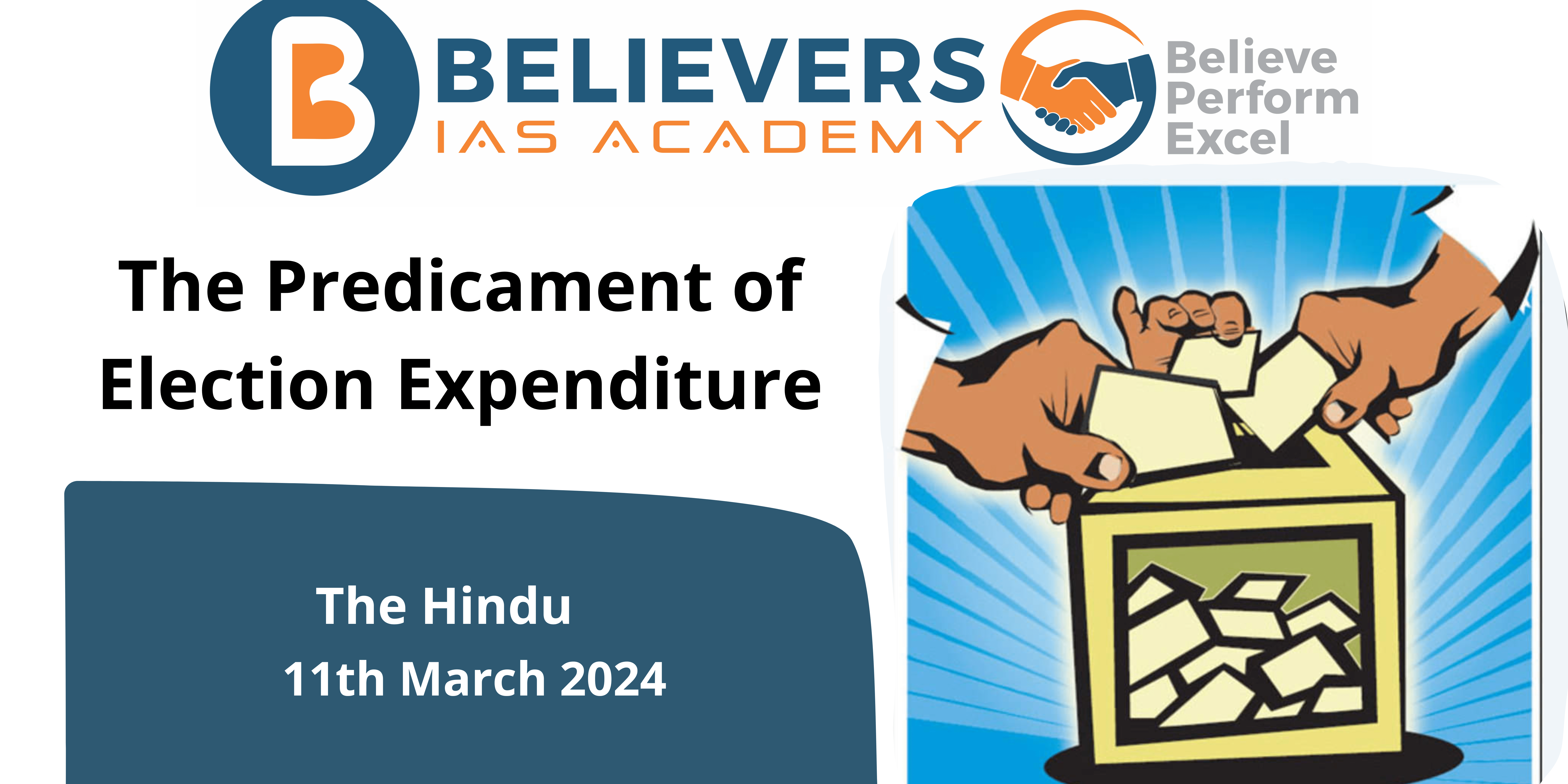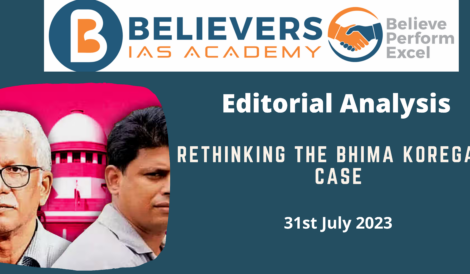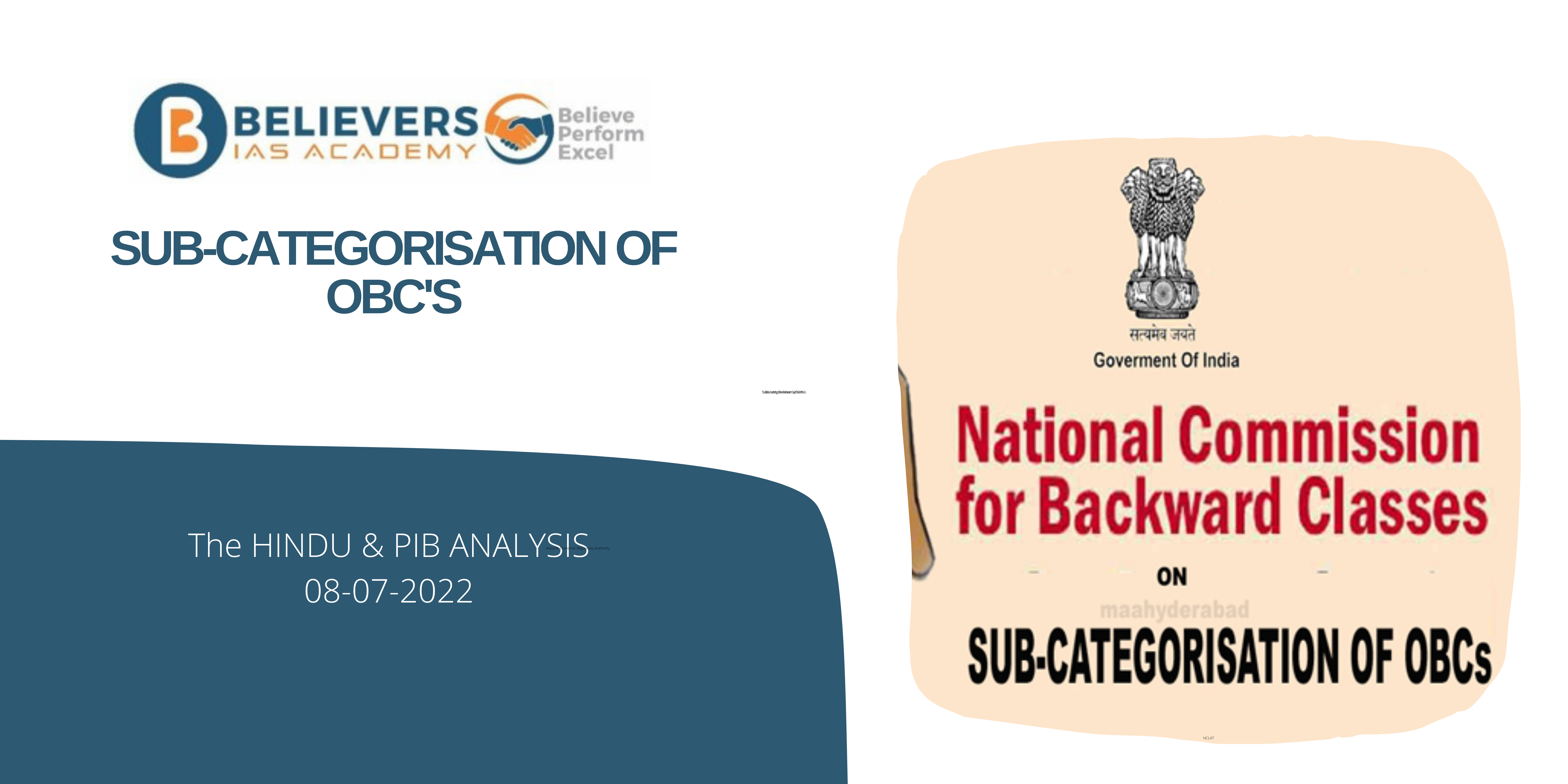The Predicament of Election Expenditure
Context:
Reports show that government spending on advertisements before elections have crossed limits and the same has been a contentious issue. This surge in election expenditure in-turn raises concerns about its fairness and transparency.
Relevance:
GS-02 (Polity)
Government Advertisement Expenditure:
- Reports indicate significant spending on such campaigns, raising questions about the use of public funds for partisan purposes.
- Despite guidelines laid down by the Supreme Court, the governments often exploit this avenue to gain electoral advantage, undermining the principle of a level playing field.
Candidate Expenditure Limits:
- Election expenditure limits for candidates are routinely flouted, with candidates exceeding prescribed limits by substantial margins.
- Illegal distribution of cash and gifts to voters further compounds the issue, highlighting the challenges in enforcing spending regulations effectively.
Political Party Funding:
- Political parties receive significant funding from corporate entities and businessmen, with a substantial portion of this funding remaining undisclosed.
- The lack of transparency in political funding creates an unhealthy nexus between donors and elected representatives, raising concerns about undue influence and corruption.
- While the Supreme Court’s decision to strike down the electoral bonds scheme aimed to address opacity in donations, challenges persist in curbing unaccounted cash transactions.
What is Limit on Election Expenditure:
- The election expenditure limit is the maximum amount that an election candidate is legally allowed to spend on their campaign, covering expenses such as public meetings, rallies, advertisements, posters, banners, vehicles, and more.
- Section 77 of the Representation of the People Act (RPA), 1951: Candidates must maintain accurate records of all expenses from the date of nomination until the declaration of results.
- Within 30 days of the election’s completion, candidates must submit a detailed expenditure statement to the Election Commission of India (ECI).
- Failure to adhere to the expenditure limit or provide accurate accounts may result in the disqualification of the candidate for up to three years under Section 10A of the RPA, 1951.
- Despite the prescribed limit, concerns have been raised about its realism, as candidates often exceed the cap due to actual campaign costs being much higher.
- While political parties have no spending limit, they must still submit an expenditure statement to the ECI within 90 days of the election’s conclusion.
Proposed Electoral Reforms:
- The Indrajit Gupta Committee and the Law Commission advocated for state funding of elections as a means to reduce reliance on private funding and curb electoral malpractices.
- National Commission to Review the Working of the Constitution (2000): It did not support the idea but mentioned that an appropriate framework for the regulation of political parties needs to be implemented before state funding is considered.
- However, implementing such measures requires consensus among political parties and strict adherence to funding norms.




